The method uses a recursive approach to print every possible combination of a set of letters.
for example input: abc
output:
abc acb bac bca cab cba
Im unsure how to figure the time complexity for the code. I am thinking it is 2^n due to the for loop within the recursive function but unsure how to go about solving
public class WordScrambler {
public static void scrambleLetters(String remainLetters, // Remaining letters
String scramLetters) { // Scrambled letters
String tmpString; // Temp word combinations
int i; // Loop index
if (remainLetters.length() == 0) { // Base case: All letters used
System.out.println(scramLetters);
}
else {
// Recursive case: move a letter from
// remaining to scrambled letters
for (i = 0; i < remainLetters.length(); ++i) {
// Move letter to scrambled letters
tmpString = remainLetters.substring(i, i + 1);
remainLetters = removeFromIndex(remainLetters, i);
scramLetters = scramLetters + tmpString;
scrambleLetters(remainLetters, scramLetters);
// Put letter back in remaining letters
remainLetters = insertAtIndex(remainLetters, tmpString, i);
scramLetters = removeFromIndex(scramLetters, scramLetters.length() - 1);
}
}
}
// Returns a new String without the character at location remLoc
public static String removeFromIndex(String origStr, int remLoc) {
String finalStr; // Temp string to extract char
finalStr = origStr.substring(0, remLoc); // Copy before location remLoc
finalStr += origStr.substring(remLoc + 1, origStr.length()); // Copy after location remLoc
return finalStr;
}
// Returns a new String with the character specified by insertStr
// inserted at location addLoc
public static String insertAtIndex(String origStr, String insertStr, int addLoc) {
String finalStr; // Temp string to extract char
finalStr = origStr.substring(0, addLoc); // Copy before location addLoc
finalStr += insertStr; // Copy character to location addLoc
finalStr += origStr.substring(addLoc); // Copy after location addLoc
return finalStr;
}
public static void main(String[] args) {
Scanner scnr = new Scanner(System.in);
String wordScramble; // User defined word to scramble
// Prompt user for input
System.out.print("Enter a word to be scrambled: ");
wordScramble = scnr.next();
// Call recursive method
scrambleLetters(wordScramble, "");
System.out.println("counter " + wordcounter);
}
}
